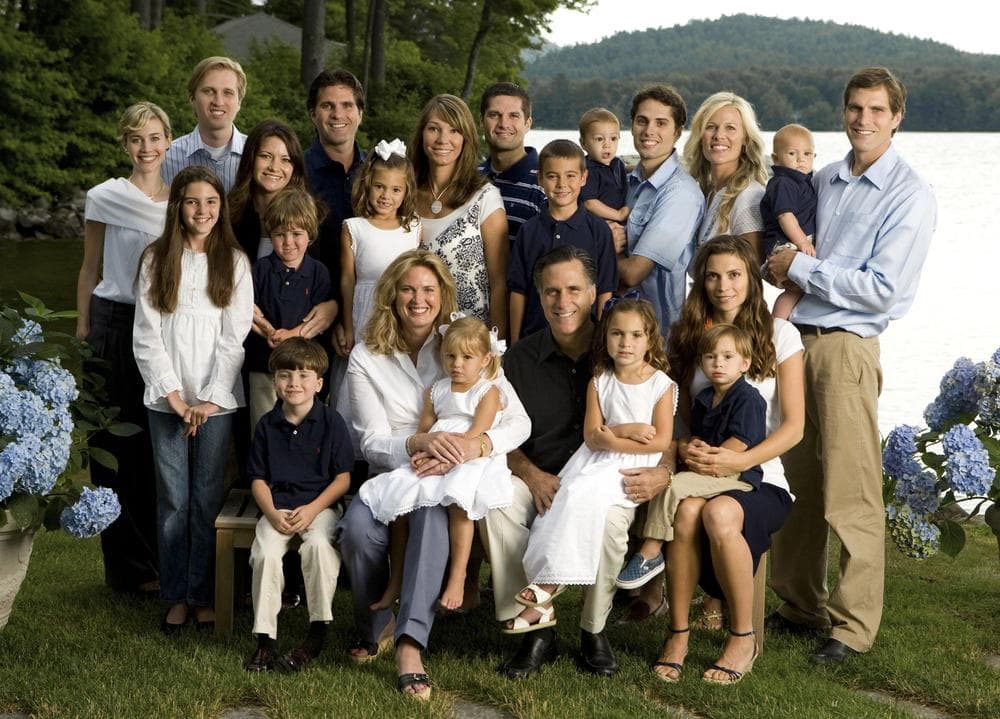Advertisement
The Perils Of Perfection
These days must be difficult for Mitt Romney.
Throughout his life – most everything has gone well. He had picture-book 1950s parents — a father famous in business and politics, a mother known for her charm and beauty. He attended the best schools — including Brigham Young University where, according to a quote in the New Yorker, "everyone wanted to be Mitt Romney." He was tall, dark, and handsome. He married his high school sweetheart. He went to work for two top consulting groups, then started an elite private equity firm. Along the way he had five strapping sons and acquired a fortune estimated at $250 million.
He did everything right. In many ways, he is perfect.
And that is exactly the problem. His perfection has damaged his perception of life and diminished his appeal to voters.
To be sure, there have been a few ripples on the pond — a car crash in France, his wife's multiple sclerosis. But these were beyond his control. For most of his life, his every decision led to success.
In many cases, presidents' struggles — Lincoln's melancholy, Roosevelt's paralysis, Bush's alcoholism — humanized them.
There is an old and flawed tradition in human thought that goes back to Biblical times, which states that our circumstances in life are the results of our behavior. In the Book of Job, after Job has fallen into terrible suffering, his friends press him to remember the sins and mistakes for which he was clearly being punished. In the ancient mind, outcomes in life were determined by one's actions: the just prospered, the unjust perished.
This theory is pernicious, because it provides a moral and spiritual justification for inequality. Poor must have done something for which they are being stricken with poverty. Conversely, wealthy people can rest assured their prosperity has been granted by a beneficent and invisible hand — that of God, or, today, of the market. For the rich, life is good – especially, because it is fair.
This hidden creed explains the bizarre resentment that so many wealthy people in America today feel towards those who are struggling: It must be their own fault. Look at us. We did everything right. And we have been rewarded for our virtue.

This toxic notion has now morphed into the passionate right-wing fanaticism for what they call the free market, a morally perfect place where winners win, and losers lose. One can hears echoes of this credo in Romney's infamous "47 percent" speech, where he implicitly blames poverty on people's bad attitudes.
Unfortunately for him, to win the presidency he must win some of the votes of the social and moral misfits he seems to secretly disdain. This is where Romney's history of perfection becomes such a problem for him.
The vast majority of people make mistakes — or have curve balls thrown at them. They understand that many of life's greatest challenges occur at random. They want a president who understands this too.
Most great American presidents had full-on personal crises in which they had to cope with the misery and unfairness of calamity and error. In many cases our presidents' struggles — Abraham Lincoln's persistent melancholy, Franklin D. Roosevelt's undiscussed illness, George W. Bush's decades of alcoholism — humanized them.
Romney has lost elections before, but he decided that these were impediments that he could overcome by working harder. If he loses this one, it may be the first time he will have done everything according to plan, and still had the results go against him. And the consensus will overwhelmingly be that it will have been his fault. His record of perfection will be broken. If this happens, perhaps then he will understand something about personal failure — and thus, too late, he will feel a true bond to the people he wants so much to lead.
This program aired on October 4, 2012. The audio for this program is not available.